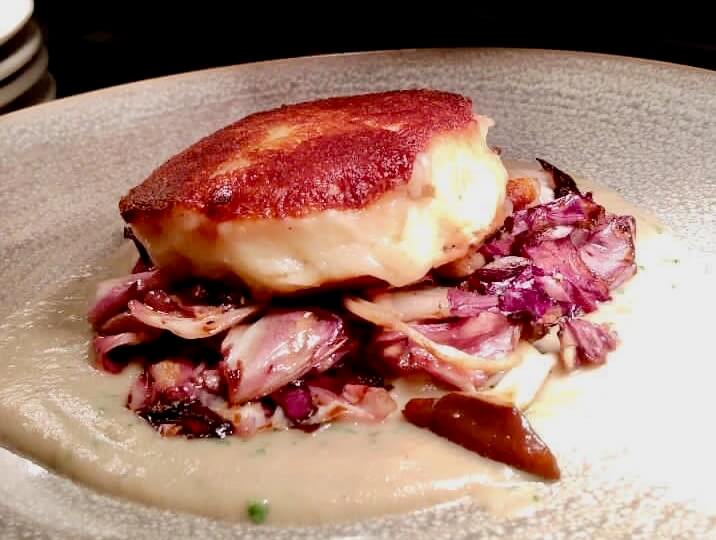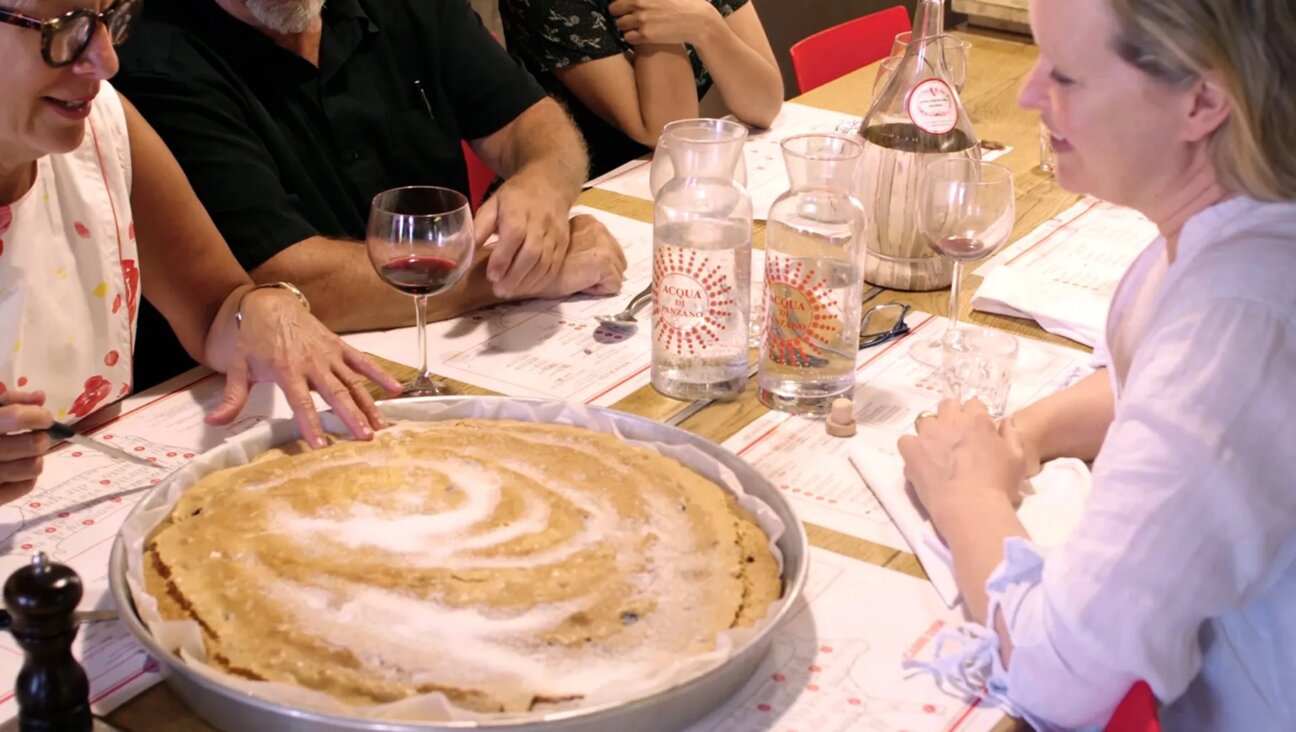The ‘Moosewood Cookbook’ Revisited
This is a sporadic column by Bay Area personal chef Alix Wall, in which she evaluates a cookbook by making some of its recipes, sharing them with friends and asking what they think of the results. This time, she cooks her way through the 40th-anniversary edition of the “Moosewood Cookbook.”
Does the “Moosewood Cookbook” really need an introduction? Don’t you have your own splatter-stained copy that’s been on your shelf as long as you’ve been cooking? Or maybe your mom handed it down to you when you moved out on your own? After all, it’s been in print 40 years, and remains one of the most popular cookbooks of all time.
Ten Speed Press, the Berkeley-based publisher that got its start along with the “Moosewood,” recently put out a 40th-anniversary edition. If you bought the updated (read: lightened up on the dairy and eggs) version from 1992, there’s no need to buy this one. And if you’re still cooking from your original, as I am, you don’t have to run out to buy this edition either. However, if you know some youngsters who are unfamiliar with “The Moosewood Cookbook,” the 40th anniversary is indeed a fine time to introduce them to a book that came out when vegetarianism was still relegated to the hippies.
The cookbook got its start as a hand-written notebook (which is why the cookbook is handwritten, too) of recipes cooked at the Moosewood Restaurant in Ithaca, New York, a vegetarian place where none of the chefs were professionally trained and all brought in family recipes, which they modified to make vegetarian.
A young Mollie Katzen was the one who collected the recipes to placate happy diners who wanted them, and started distributing her hand-mimeographed notebook by toting the copies around in her car.
Simply put, this is not fancy food. Reading it now, the recipes hardly seem groundbreaking. But if you think back to 40 years ago, they were. And I would argue that for weeknight dinners, meatless mondays or what have you, they still hold up — with some exceptions.
For a Shabbat dinner with visiting friends — one of them vegan — I put “Moosewood” to the test. I chose four recipes that had dairy either just as a garnish or not at all: potato-fennel soup with browned onions; cauliflower Marranca; Odessa beets and apple strudel. Interestingly, while Katzen’s latest effort, “The Heart of the Plate,” is loaded with vegan modifications and vegan-friendly options, the original “Moosewood” is not. I had another restriction, too: I didn’t want to make anything from the book that I’d tried before, which further limited my options.
The potato-fennel soup was simple but delicious. Everyone appreciated how the caramelized onions added sweetness to an otherwise savory soup. Though not the greatest fennel fan, Susan liked the amount, while I thought the dish could have used more. Susan described it as comfort food, with Mitch saying “It doesn’t matter that it’s not the most interesting soup, it’s still good.” Sarah would have preferred the potatoes peeled, and thought garlic croutons would have been an excellent addition, while Paulie concluded, “It’s better than your garden-variety hippie soup.”
While the recipe calls for water as a base, I always have homemade veggie stock in my freezer, so I used that instead and reduced the salt. I’m sure it gave the soup more flavor than it would have had otherwise. The yogurt drizzle and fennel fronds offered a bit of much-needed color to an otherwise beige concoction.
Cauliflower Marranca is a casserole made with cauliflower, millet, mushrooms and onions. Cheese is optional, and I happened to have some excellent vegan cheese in my fridge, which was perfect for this. While the casserole fell into the comfort-food category, none of us were wowed. Mitch said it reminded him of stuffing, and thought it could have used a little heat in the form of white pepper or cayenne. Paulie said he would have preferred farro over the millet. We all thought it was a bit dry.
Odessa Beets calls for roasted beets, which are then shredded and tossed with prunes, lemon juice, garlic, walnuts and bits of pineapple. I thought the lemon and garlic would balance out the sweetness, but I was wrong. Nothing about this dish worked for us, from the soft texture (Paulie suggested the beets should have remained raw) to the cloying sweetness, which reminded us of one of those Jello-based salads from the 60s. Next.
I can’t remember making apple strudel before, and this one was a knockout. Apples are tossed with raisins, walnuts, cinnamon, sugar, lemon juice and zest and then wrapped in phyllo dough into rolls. Had I not been cooking vegan, I probably would have chosen a different dessert, but I’m so glad I didn’t. (I made two of the three rolls with melted butter and one with oil). With only a small amount of sugar, the apples’ natural tartness came through, and the flavors were all-out delicious.
Mitch, who doesn’t usually like cooked apples, said he liked how they stayed in firm, distinct pieces and didn’t reduce to mush. Everyone agreed this strudel was the highlight of the night. (Serve it with a scoop of vanilla ice cream or Coconut Bliss).
The recipe, for three rolls, is meant to serves 8 to 10. I baked two of the three and found that one easily served the five of us. Happily, this delicious dessert freezes well unbaked, so some lucky unknown guests will be having apple strudel for dessert in the near future.

I hope you appreciated this article. Before you go, I’d like to ask you to please support the Forward’s award-winning journalism this Passover.
In this age of misinformation, our work is needed like never before. We report on the news that matters most to American Jews, driven by truth, not ideology.
At a time when newsrooms are closing or cutting back, the Forward has removed its paywall. That means for the first time in our 126-year history, Forward journalism is free to everyone, everywhere. With an ongoing war, rising antisemitism, and a flood of disinformation that may affect the upcoming election, we believe that free and open access to Jewish journalism is imperative.
Readers like you make it all possible. Right now, we’re in the middle of our Passover Pledge Drive and we still need 300 people to step up and make a gift to sustain our trustworthy, independent journalism.
Make a gift of any size and become a Forward member today. You’ll support our mission to tell the American Jewish story fully and fairly.
— Rachel Fishman Feddersen, Publisher and CEO
Join our mission to tell the Jewish story fully and fairly.
Only 300 more gifts needed by April 30

























